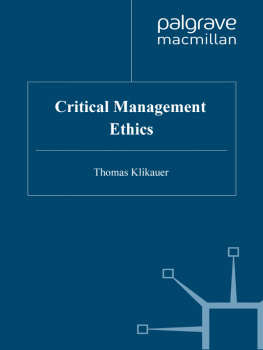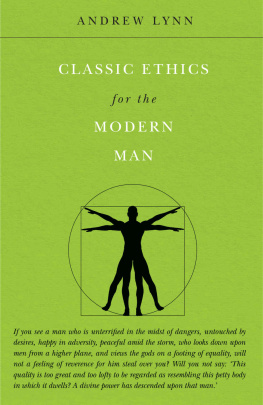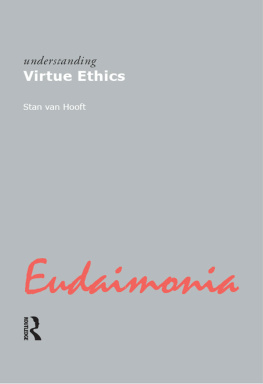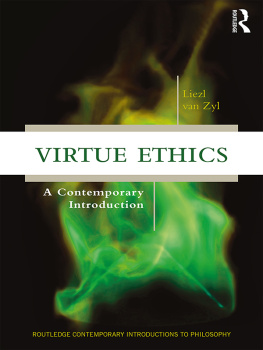Thomas Klikauer - Critical Management Ethics
Here you can read online Thomas Klikauer - Critical Management Ethics full text of the book (entire story) in english for free. Download pdf and epub, get meaning, cover and reviews about this ebook. year: 2010, publisher: Palgrave Macmillan, genre: Science. Description of the work, (preface) as well as reviews are available. Best literature library LitArk.com created for fans of good reading and offers a wide selection of genres:
Romance novel
Science fiction
Adventure
Detective
Science
History
Home and family
Prose
Art
Politics
Computer
Non-fiction
Religion
Business
Children
Humor
Choose a favorite category and find really read worthwhile books. Enjoy immersion in the world of imagination, feel the emotions of the characters or learn something new for yourself, make an fascinating discovery.
- Book:Critical Management Ethics
- Author:
- Publisher:Palgrave Macmillan
- Genre:
- Year:2010
- Rating:4 / 5
- Favourites:Add to favourites
- Your mark:
- 80
- 1
- 2
- 3
- 4
- 5
Critical Management Ethics: summary, description and annotation
We offer to read an annotation, description, summary or preface (depends on what the author of the book "Critical Management Ethics" wrote himself). If you haven't found the necessary information about the book — write in the comments, we will try to find it.
Critical Management Ethics — read online for free the complete book (whole text) full work
Below is the text of the book, divided by pages. System saving the place of the last page read, allows you to conveniently read the book "Critical Management Ethics" online for free, without having to search again every time where you left off. Put a bookmark, and you can go to the page where you finished reading at any time.
Font size:
Interval:
Bookmark:
Ethics
Thomas Klikauer


Thomas Klikauer 2010
All rights reserved. No reproduction, copy or transmission of this publication may be made without written permission.
No portion of this publication may be reproduced, copied or transmitted save with written permission or in accordance with the provisions of the Copyright, Designs and Patents Act 1988, or under the terms of any licence permitting limited copying issued by the Copyright Licensing Agency, Saffron House, 610 Kirby Street, London EC1N 8TS.
Any person who does any unauthorized act in relation to this publication may be liable to criminal prosecution and civil claims for damages.
The author has asserted his right to be identified as the author of this work in accordance with the Copyright, Designs and Patents Act 1988.
First published 2010 by
PALGRAVE MACMILLAN
Palgrave Macmillan in the UK is an imprint of Macmillan Publishers Limited, registered in England, company number 785998, of Houndmills, Basingstoke, Hampshire RG21 6XS.
Palgrave Macmillan in the US is a division of St Martins Press LLC, 175 Fifth Avenue, New York, NY 10010.
Palgrave Macmillan is the global academic imprint of the above companies and has companies and representatives throughout the world.
Palgrave and Macmillan are registered trademarks in the United States, the United Kingdom, Europe and other countries
ISBN 978-0-230-23825-1 hardback
This book is printed on paper suitable for recycling and made from fully managed and sustained forest sources. Logging, pulping and manufacturing processes are expected to conform to the environmental regulations of the country of origin.
A catalogue record for this book is available from the British Library.
A catalog record for this book is available from the Library of Congress.
10 9 8 7 6 5 4 3 2 1
19 18 17 16 15 14 13 12 11 10
Printed and bound in Great Britain by
CPI Antony Rowe, Chippenham and Eastbourne
This book is dedicated to
Josef Klikauer
1st October 1895 to 20th October 1944; born in
Konstantynw, Poland; executed at the Nazi Concentration
Camp Gross Rosen, Rogo nicy (http://www.gross-rosen.pl).
nicy (http://www.gross-rosen.pl).
All royalties from the sale of this book will be donated to the
Gross Rosen Museum at Rogo nicy.
nicy.
I would like to acknowledge the assistance, critique, and help on the initial idea for this book: Peter Singer, Gary Weaver, and Robert Phillips. I would also like to acknowledge the proofreading and editorial assistance support of, firstly, my adored wife, Katja and my friend Khalida Malik without whom this book would not have been possible. This book has received no administrative, technical, and editorial support or funding from UWS. I am grateful for IT support by my friend Mark Evans who assembled a computer for me out of old parts and eventually updated it to a workable level and to Louise Ingersoll and others at UWS IR teaching-group who provided a fountain of administrative knowledge to me shielding me from the worst excesses of Managerialism.
Many books in the area of management ethics are written under the premise that ethics relates positively, if not affirmatively, to management, business, and corporations. Inside this most common approach to management ethics, ethics is subsumed under the domineering ideas of management. Rather than outlining the relationship between management and ethics, ethics is constructed as the management of ethics. Rather than viewing management ethics as part of philosophy or applied philosophy, management ethics is seen as part of management. Hence, management ethics is not a branch of management philosophy but a branch of management studies. The emphasis in management ethics is on management, not on ethics. Therefore, management ethics is not viewed as a philosophical study of morals but a study of management morality minus philosophy which takes the backseat. Management ethics has been turned into a departmental issue like operations, marketing, sales, Human Resource Management (HRM), etc. that needs to be managed.
Anchored so deeply inside corporations and society, Managerialism has become the all encompassing ideology of everyday life as we all learn to think like managers and accept that society always has managers (according to the Harvard Business Review Editor Magretta, 2002). With the mass-acceptance of this, Managerialism can even be portrayed as the end of ideology because it has been successfully merged with everyday life.(384322 BC) to Kants means-ends imperatives (17241804) are used to support management. This process converts ethics into pure ideology. Ethics has been adjusted to the managerial orbit without impacting on managerial practice. Consequently, it has been degraded from being a philosophy to being merely knowledge in the service of power.
Under such an imperative, the role of ethics is often reduced to a supportive function of management. It services as an auxiliary to value creation which is the managerial codeword for shareholder values and profit maximisation. In sharp contrast to managements use of the term value, philosophy applies the same term to something totally different. For ethics, values are linked to the philosophy of values. For management only the hard values such as shareholder values count. Only when something marketing, sales, operations, HRM, and even ethics adds to shareholder value, it is of value to management.
Therefore, in the mind of a manager, ethics and morality are often seen as Oh, well, its all just a matter of opinion, anyway. For many managers morality is an issue of a specific situation that relates to ethics rather than an overall, basic, and essential part of what they do. In other cases, ethics is reduced to the ten ethical misconceptions one of which is: some see it that way, others see it differently. In sum, when the operation of management and The Real Bottom Line is not concerned, many managers suffer sometimes rather conveniently from moral attention deficit disorder (MADD), moral silence, moral deafness, moral blindness, and moral amnesia (Jacoby 1977; Bird 1996).
If ethics is being considered by managers at all, it has to add value to their organisational goals, another codeword of managements bottom line of profits. Management always has to come first and ethics, if it is of value to management, comes later. Ethics is simply a somewhat distant add-on to management like milk in a coffee, if needed at all.
In contrast to this formula, one can never simply subsume ethics under management. For one, Kants categorical imperative demands that this has to be done the other way around. For perhaps the greatest ethical philosopher ever Immanuel Kant (17241804), the sage of Knigsberg ethics sets determinants, imperatives, and musts. Everything has to measure up to ethics. Ethics cannot be used to supply legitimacy to anything, at the least to management. Kantian ethics is the total negation of the standard M+E=ME approach metered out in almost all textbooks on management ethics. Most commonly, and most wrongly, textbook writers who follow the M+E=ME formula are part of an entourage of affirmative writers on management ethics. They have turned the philosophy of ethics into a pure ideology misusing ethical knowledge to serve managerial power (Baritz 1960; Jacoby 1977). Such uncritical, affirmative, and highly accommodating textbook writers are left with Hirschmans (1970) famous three options of
Font size:
Interval:
Bookmark:
Similar books «Critical Management Ethics»
Look at similar books to Critical Management Ethics. We have selected literature similar in name and meaning in the hope of providing readers with more options to find new, interesting, not yet read works.
Discussion, reviews of the book Critical Management Ethics and just readers' own opinions. Leave your comments, write what you think about the work, its meaning or the main characters. Specify what exactly you liked and what you didn't like, and why you think so.







